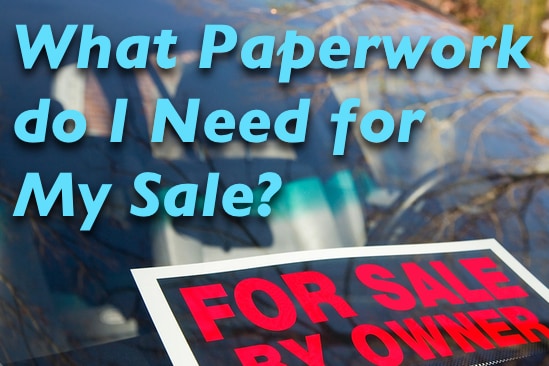
Selling your car can be an exciting and rewarding experience, and in an effort to make it smooth and safe, it’s best to have all your documents in order up front. Let’s take a look at what you need to not only seal the deal, but also get the most out of your asking price. Let’s dive in!
-
Vehicle Title: This one should be obvious, as it’s the most crucial of the bunch. It's the legal proof of ownership and shows that you even have the right to sell the car. Make sure the title is in your name and that it's free from any liens or encumbrances, because if you still have a loan on the vehicle you'll need to contact your lienholder to arrange the payoff to obtain the title.
-
Odometer Disclosure: The federal law requires you to provide an accurate odometer reading at the time of sale. You'll need to complete the Odometer Disclosure Statement on the back of the title or on a separate form (Form MVR-180) available from the North Carolina Division of Motor Vehicles (DMV) office. Be honest and precise when filling out this form, as any discrepancies can come back to bite you.
-
Bill of Sale: Although not legally required in North Carolina, it's highly recommended to have a Bill of Sale. This document includes important information such as the buyer and seller's details, vehicle description, sale price, and the date of the sale. Having a Bill of Sale can protect both parties – most notably YOU – by providing a clear record of the transaction.
-
Release of Liability: To protect yourself from any potential liability issues that may arise after the sale, complete and submit a Notice of Vehicle Sale (Form MVR-28) to the DMV. This form notifies the DMV that you are no longer responsible for the vehicle and its operation. It's a simple process and can be done online or by mail.
-
Maintenance and Repair Records: Not everyone is great about keeping such records, but these documents are where you can secure a better price, as providing maintenance and repair records can instill confidence in buyers. Clearly, it shows that you've taken good care of the vehicle and can help justify your asking price. Gather any service receipts, inspection reports, or records of major repairs you have on hand, you’ll be glad you did.
-
Other Supporting Documents: Depending on your situation, you may need additional paperwork. For example, if you're selling a salvaged or rebuilt vehicle, you'll need to disclose this information to the buyer. It's also a good idea to provide the buyer with a Vehicle History Report, which can be obtained from reputable providers like Carfax or AutoCheck.
Remember, it's essential to follow the North Carolina DMV guidelines when selling your car privately. Keep copies of all documents for your records and ensure that both you and the buyer sign and date everything accurately.
Selling your car privately in North Carolina can be a straightforward process when you have the right paperwork in order. By having the vehicle title, odometer disclosure, bill of sale, release of liability, maintenance records, and any other necessary documents ready, you'll be well-prepared to complete a successful sale.
If you have any doubts or questions about the paperwork required, don't hesitate to reach out to your local North Carolina DMV office or consult with legal professionals to ensure a smooth and hassle-free transaction. Good luck with your sale, and may you find the perfect buyer for your beloved car!